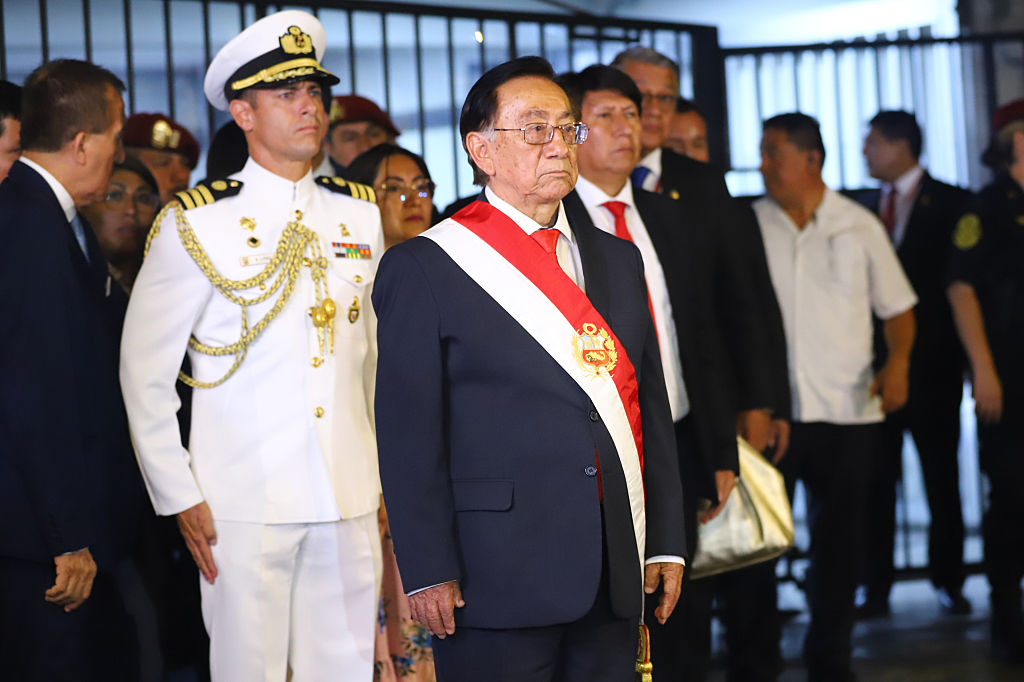Venezuelan Press Squeezed as Election Approaches
Venezuelan Press Squeezed as Election Approaches
With Venezuela preparing for a competitive presidential election, media watchdogs warn of restrictions on press freedoms ahead of voting day.
As Venezuela moves toward its October 7 election, President Hugo Chávez faces his toughest race since he took office almost 14 years ago, competing against former Miranda-state Governor Henrique Capriles. During the campaign Capriles has complained that Chávez benefits from unfair control of state media. One example occurred on September 17, when Chávez interrupted a news broadcast of a Capriles speech to run a promotional spot celebrating his government’s achievements. Moreover, press-monitoring organizations report that journalists face threats at political events stemming from attacks by each candidate’s supporters.
Concerns about Venezuelan press freedoms stretch back well before the presidential campaigns. An August 2012 report published by the Committee to Protect Journalists (CPJ) found that “the Chávez administration has used an array of legislation, threats, and regulatory measures to gradually break down Venezuela’s independent press while building up a state media empire.” For example, after media coverage of a February 2012 oil spill threatened to stain his government’s reputation, Chávez passed a federal rule that required journalists covering the incidents to base their reports on a “truthful technical report backed by a competent institution.” Violators were threatened with fines and jail time. The law supplements a 2004 statute that bans radio and TV outlets (and, as of 2010, online media) from broadcasting or displaying content that could “incite or promote hatred or intolerance.” CPJ found that “to sidestep the potential fines or prison terms, many journalists and publications censor their own coverage.”
Dariela Sosa, a Venezuelan radio journalist who attended AS/COA’s September 18 panel discussion on the election explained: “[W]e have a huge problem of access to information in Venezuela.” Some of this can be linked to hurdles faced by outlets critical of the government, as shown by the ongoing struggles of Globovisión. A 2012 Amnesty International report found that after Chávez’s administration found fault with media coverage of a 2011 prison riot, the country’s National Telecommunications Commission imposed a $2.2 million fine on Globovisión, a prominent independent TV company, for violating the country’s laws on broadcasting objectionable content. On June 28, Venezuela’s Supreme Court, still pressing the network for its prison riot coverage, more than doubled the original fine to $5.6 million. The outlet paid up to avoid losing its operating license.
Observers say restrictions on media coverage mean that many of the issues most important to Venezuelans are not being pulled into public view for analysis and discussion ahead of the election. As Americas Quarterly’s blog reports, last week the Chávez government once again rejected a request from Capriles for a broadcasted presidential debate with the incumbent. “Chávez…maintains an iron grip over much of the country´s media and keeps an open wallet to pay for popular support,” writes Chile’s former Finance Minister Andres Velasco in a July op-ed. In spite of that, he added, “Capriles has mounted an impressive campaign.” The opposition candidate has taken to the streets to share his message. “Capriles… has embarked on a barnstorming tour across the country's hinterland…visiting towns long neglected by the government,” Juan Nagel, co-editor of the Caracas Chronicles wrote in an article for Foreign Policy.
But, as the election nears and the race tightens, a polarized environment spell risks for journalists, who face attacks carried out by supporters of both candidates. In a September 18 address to the European Parliament’s Subcommittee on Human Rights, Reporters Without Borders (RWB) noted that, thus far in 2012, there have been roughly 40 attacks on journalists as a result of “partisan hysteria” and around 10 cases of “sabotage against news media.” On September 9, supporters of the opposition candidate attacked a journalist who works for the state-run National Network of Venezuelan Public Media. A month earlier, a group of Capriles supporters attacked a reporter from Venezuelana de Televisión. In the midst of a September 12 confrontation between Chávez supporters and opposition members, a photographer from AFP was attacked. As the RWB address said: “In the run-up to this crucial vote, freedom of information…and democratic debate have given way as never before to invective, vilification, personal attacks and, too often, physical violence.”
In other Venezuelan news:
- During Venezuela’s October 7 election, 210,000 members of the opposition will help oversee the electoral process at the country’s voting centers. One of the opposition coordinators and former presidential candidate Leopoldo López said these observers would use different strategies to get to the country’s far-flung voting booths, going “by river, by air, by donkey, and by jeep.”
- The military will also help during Venezuela’s elections; 39,000 troops will provide security at the country’s voting centers. Wilmer Barrientos, head of the army’s strategic operations, said on September 24 that the military had also received training in electoral and human rights crimes ahead of the election.
- On September 28, Venezuela will launch from China the country’s second satellite. The satellite will be used for surveillance in the areas of security, illegal mining, urban planning, and agriculture.







